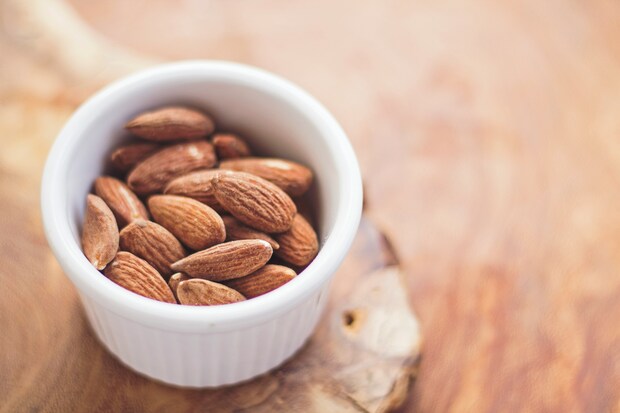
Step into the future of culinary arts where creativity meets cutting-edge technology. Imagine a world where artificial intelligence revolutionizes the way we create, innovate, and indulge in the art of cooking. Welcome to the realm of AI-powered recipe development, where innovation knows no bounds and flavors are limitless. Let’s explore how AI is reshaping the traditional culinary landscape and paving the way for a new era of gastronomic experiences.
How AI is Transforming The Traditional Recipe Development Process
Imagine a world where recipes are no longer confined to the limitations of human creativity. AI is revolutionizing the traditional recipe development process by analyzing vast amounts of data to create innovative and unique culinary creations. Through machine learning algorithms, AI can predict flavor combinations, cooking techniques, and ingredient proportions that would have taken chefs years to discover.
By utilizing AI in recipe development, food professionals can streamline their creative process, saving time and resources while pushing the boundaries of gastronomy. From creating personalized meal plans based on dietary restrictions to generating new dish ideas for restaurants, AI is reshaping how we approach food innovation.
With the ability to experiment with unconventional ingredients and flavors without fear of failure, chefs can unleash their creativity like never before. The fusion of technology and culinary arts opens up endless possibilities for reinventing classic dishes or inventing entirely new ones that tantalize our taste buds.
Benefits of Using AI in Recipe Creation
Imagine a world where chefs can access a vast database of ingredients and flavor profiles at their fingertips. With AI technology, recipe creation becomes more efficient and innovative. AI algorithms can analyze data from millions of recipes to suggest unique ingredient combinations that traditional methods might overlook.
By utilizing AI in recipe development, chefs can experiment with new flavors and techniques without spending hours on trial and error. This streamlines the creative process, allowing for faster innovation in the culinary world.
AI-powered systems can cater to dietary restrictions and preferences, making it easier for restaurants to offer personalized menu options to customers. This level of customization enhances customer satisfaction while expanding culinary possibilities.
Using AI in recipe creation helps reduce food waste by optimizing ingredient usage based on availability and freshness. This not only benefits the environment but also improves cost efficiency for businesses in the food industry.
Integrating AI into recipe development brings endless opportunities for culinary professionals to push boundaries and create unforgettable dining experiences.
Case Studies of Successful AI-powered Recipe Development in Restaurants and Food Companies
Picture this: a renowned restaurant in Paris, known for its exquisite cuisine, decides to incorporate AI into their recipe development process. With the help of cutting-edge technology, they analyze customer preferences and ingredient combinations to create dishes that captivate taste buds like never before.
In another corner of the world, a food company leverages AI algorithms to revolutionize their product line. By understanding market trends and consumer behavior patterns, they introduce innovative recipes that quickly become best-sellers on grocery store shelves.
These case studies demonstrate how AI is not just a tool but a game-changer in the culinary world. It allows chefs and food companies to push boundaries, experiment with flavors, and deliver exceptional dining experiences that resonate with modern palates.
Potential Challenges and Limitations of AI in Culinary Arts
As much as AI has revolutionized the culinary industry, it also comes with its set of challenges and limitations. One major obstacle is the lack of human intuition and creativity that can sometimes be essential in recipe development. While AI can analyze data and patterns, it may struggle to innovate or think outside the box like a human chef would.
Another challenge is the potential errors in algorithms that could lead to inaccurate recipe suggestions. The accuracy of AI-generated recipes heavily relies on the quality of data inputted into the system. If there are biases or inaccuracies in the dataset, it could result in flawed recommendations.
AI lacks sensory perception which is crucial in cooking – such as taste, smell, and texture. These sensory elements play a significant role in creating delicious dishes that appeal to our senses, something that AI may not fully grasp yet.
There are concerns about job displacement within the culinary industry as more tasks become automated through AI technology. Chefs may fear losing their creative control and personal touch when relying too much on artificial intelligence for recipe development.
Despite these challenges and limitations, incorporating AI into culinary arts opens up new possibilities for innovation and efficiency. It’s about finding a balance between leveraging technology while still cherishing traditional cooking methods to create exceptional dining experiences.
Embracing the Fusion of Technology and Creativity in Cooking
Embracing the fusion of technology and creativity in cooking opens up a world of endless possibilities for culinary innovation. As AI continues to revolutionize recipe development, chefs and food enthusiasts alike have the opportunity to explore new flavors, techniques, and dishes that were once beyond imagination. By leveraging the power of artificial intelligence, we can push the boundaries of traditional cooking methods and create gastronomic masterpieces that tantalize our taste buds.
In this digital age, where technology is seamlessly integrated into every aspect of our lives, it’s essential for the culinary industry to adapt and embrace these advancements. The marriage between AI and culinary arts not only streamlines processes but also inspires a newfound sense of creativity in the kitchen. So let’s welcome this exciting era of innovation with open arms, as we embark on a flavorful journey filled with endless culinary delights crafted with the help of artificial intelligence.

